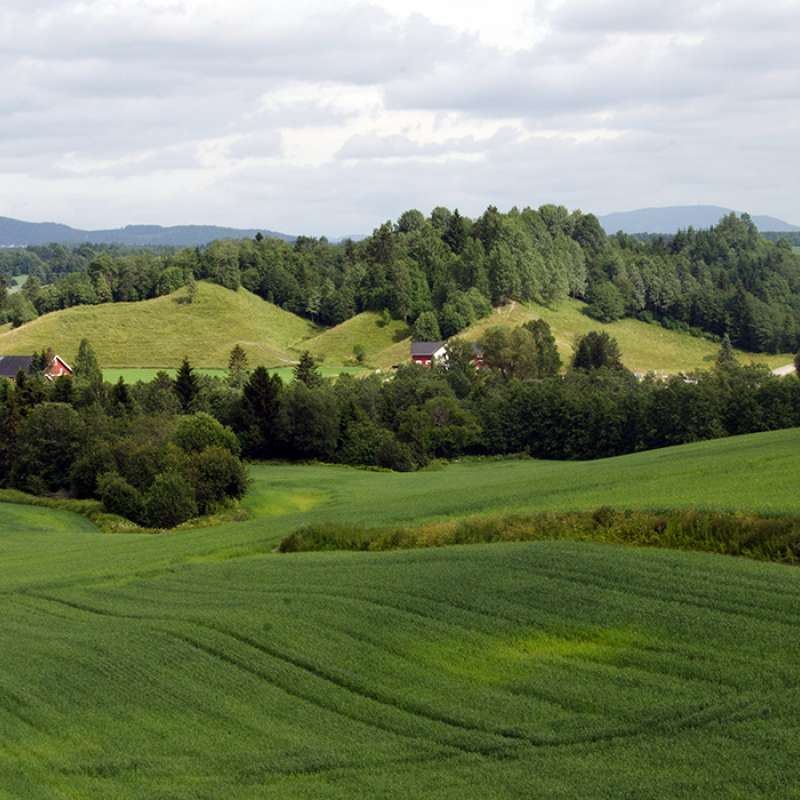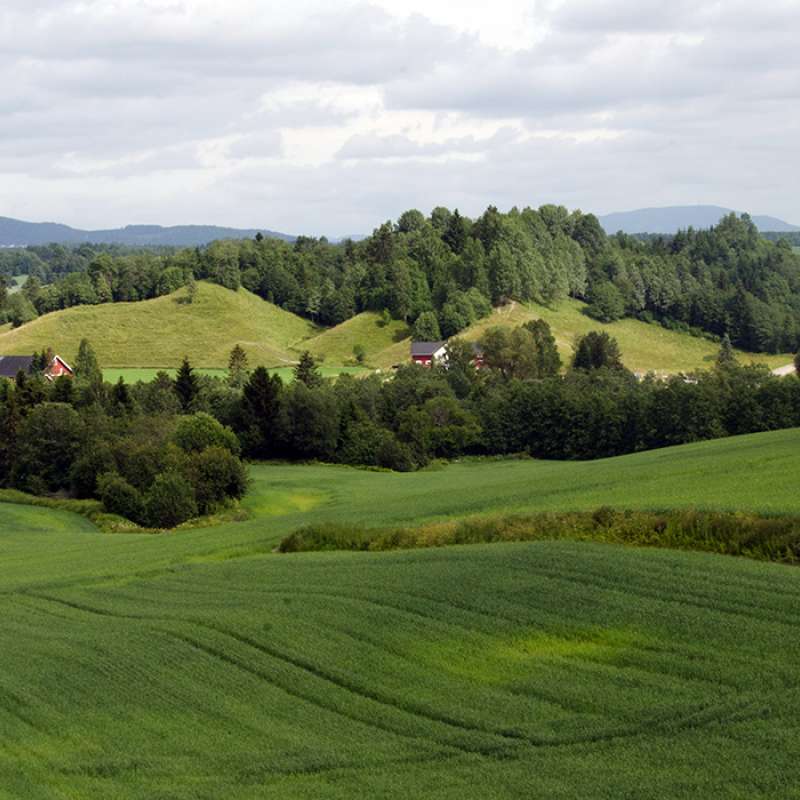Anne Kjersti Bakken
Seniorforsker
(+47) 415 53 952
anne.kjersti.bakken@nibio.no
Sted
Trondheim
Besøksadresse
Klæbuveien 153, bygg C 1.etasje, 7030 Trondheim
Forfattere
Anne Kjersti BakkenSammendrag
Det er ikke registrert sammendrag
Forfattere
Anne Kjersti BakkenSammendrag
Det er ikke registrert sammendrag
Forfattere
Anne Kjersti BakkenSammendrag
Det er ikke registrert sammendrag

Divisjon for matproduksjon og samfunn
Visions and the consequences - analysing visions for Norwegian agriculture and its consequences for food security
In the FOSIP project (Visions and the consequences - analysing visions for Norwegian agriculture and its consequences for food security) we will assess and evaluate the foundation, support, opportunities, and limitations for the goal of increased agri-food self-sufficiency in Norway and assess how far an increase will contribute to improved national food security.

Divisjon for matproduksjon og samfunn
Visions and the consequences - analysing visions for Norwegian agriculture and its consequences for food security
Norsk matsikkerheit kan bli - og er alt til ein viss grad - truga av internasjonale konfliktar, handelssanksjonar, samanbrot av internasjonal distribusjonssystem, klimaendringar, utbrot av plante- og dyresjukdommar og store endringar i etterspurnad og tilgang på mat globalt som hindrar tilstrekkeleg fôr- og matimport. Matsikkerheit er i Noreg ofte assosiert med sjølvforsyningsgraden av matvarer. I prosjektet vil vi vurdere og evaluere grunnlaget, oppslutnad, moglegheiter og avgrensingar for målet om auka sjølvforsyning av mat frå norsk jordbruk og vurdere kor langt ein auke i sjøforsyningsgraden vil auke nasjonal matsikkerheit. Først vil vi køyre ein prosess med aktørar innan matproduksjonen, frå produksjon til omsetnad av mat, og andre interessentar for å identifisere eksisterande narrativ om norsk matproduksjon og dei ideologiske og moralske forskjellane mellom narrativ. Vidare vil vi rekruttere medlemmar til grupper som representerer eksisterande narrativ for å definere det vi kallar "idealtypane" av framtidas matsystem. Dette vil skje gjennom ei rekkje tverrfaglege seminar med medlemmane av gruppene og dei involverte forskarane. Dei definerte "idealtypane" for matsystem vil deretter bli omsett til kvantitative inndata til modellar og analysert. Resultat frå modellkøyringane er produksjonsmengd av ulike jordbruksvarer, miljømessige og økonomiske konsekvensar, kosthaldspåverknad og sjølvforsyningsgrad av jordbruksprodukt. Modellresultata vil bli evaluerte med involvering av interessentar og om naudsynt køyrd om att. Dei endelege modellresultata vil deretter bli brukte til å vurdere effektane av dei ulike "idealtypane" på fleire indikatorar for norsk matsikkerheit. Resultata av vurderinga av sjølvforsyningsgrad og matsikkerheit vil bli kommunisert og diskutert med avgjerdstakarar og aktørar med interesse i og for jordbruk og matproduksjon. Vår ambisjon er brei formidling og debatt om resultata, og vi vil såleis bruke ulike kommunikasjonskanalar
.jpg?quality=60)
Divisjon for matproduksjon og samfunn
Cultivating sustainable changes in livestock feed production and feeding practices (Feed&Feeding)
The project will evaluate various strategies for feed production and feeding practices to enhance the sustainability of Norway's food system and support national agricultural policy goals. These strategies include adjusting livestock diets, improving breeding and animal health, and introducing new protein sources for feed. The project will assess environmental impacts, such as land use changes, greenhouse gas emissions, soil carbon levels, nutrient balances, and biodiversity, as well as socioeconomic impacts, including food security, economic and social sustainability, and the viability of rural communities.
